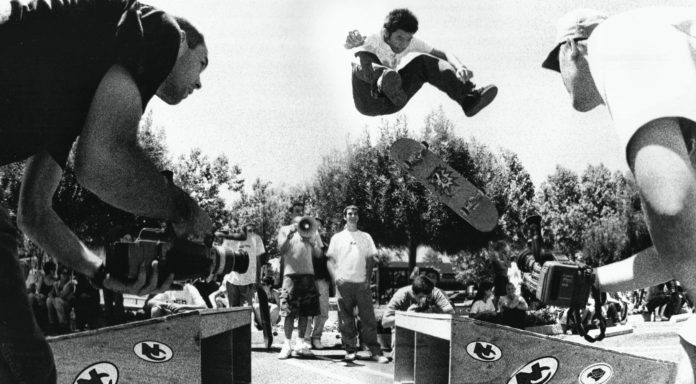
Despite waves of consolidation in the surfing and skateboarding industries, and the challenges faced by brick and mortar retail with the growth of digital shopping, Los Gatos’ NC Boardshop has stood as a steadfast presence.
The storefront at 16203 Los Gatos Boulevard is as unassuming as the automotive place next door, yet the company has been responsible for nurturing internationally renowned athletes and influential brands.
“The online battle is something we’re going to be fighting the rest of our lives,” said owner Mike Allen, 52, reflecting on how a heavy emphasis on building relationships with customers has been critical to business longevity. “They know they’re going to see a face they recognize.”
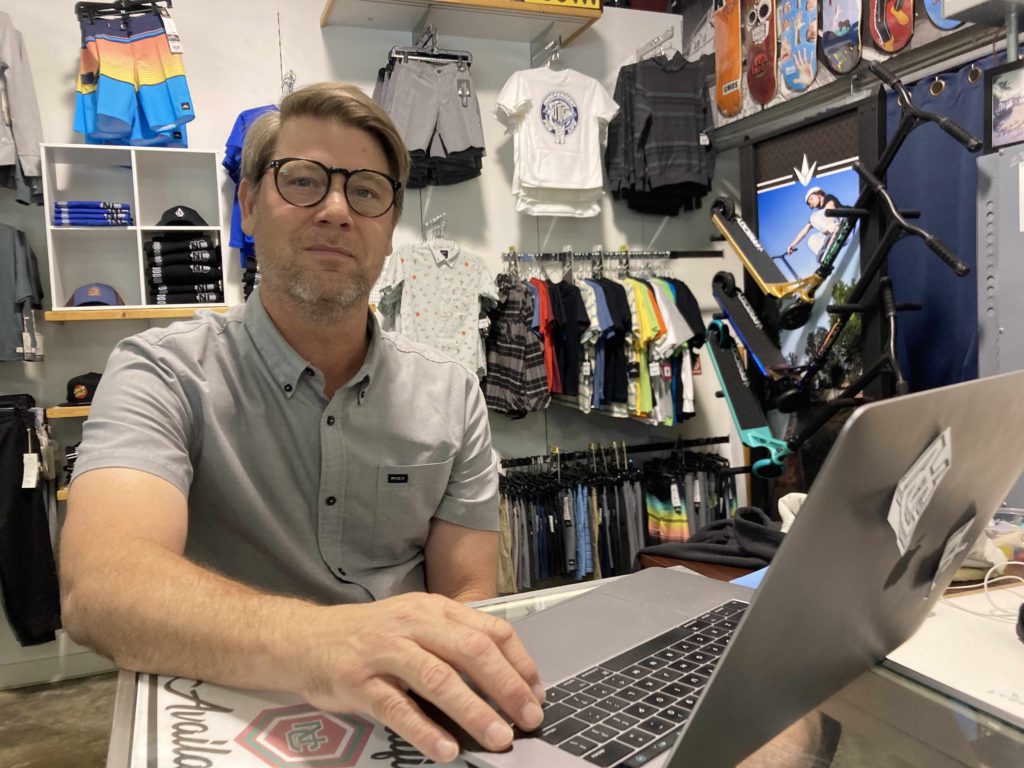
The global skateboard market was valued at $3.45 billion in 2023 and found to be growing at a rate of 3.4% by Stellar Market Research, and the surfing industry is valued at $4.2 billion and growing at a 3.5% rate, according to ReasearchAndMarkets.com.
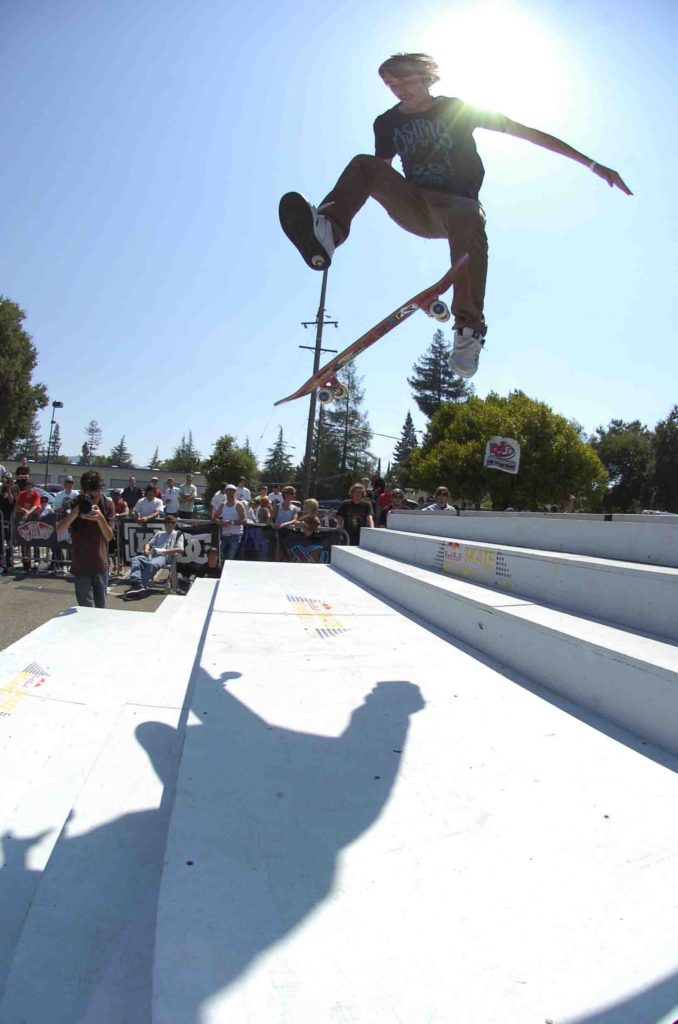
But individual athletes and local businesses have sometimes struggled to take advantage of the increased participation in these relatively young disciplines.
In a recent interview with BeachGrit, pro surfer Kolohe Andino lamented that the top competitive surfers these days are only making $150-300,000—a pittance compared with what talent can bring in playing other sports.
Meanwhile, some of the most iconic boardsport brands have been snapped up by international conglomerates and have been retooled to zero-in on selling T-Shirts and other apparel.
Allen says their approach to succeeding as an independent, family-run shop amid the roller-coaster ride of the current landscape is to remain true to the fundamentals.
“We always try to be the best at what we do, but we also don’t want to lose focus,” he said, noting they’ve turned down franchise opportunities. “We wanted to stay small and stay happy.”
Fresh out of Chico State, Alex Vecchiet founded the business back in 1986. Named “No Control,” it had a totally 80s attitude, complete with the thatched roof at the checkout counter and a Jimbo Phillips logo.
Allen grew up skating in Florida and made the move to California in 1991.
“Coming to this area—with San Francisco where it is, and the San Jose scene being as big as it is—was just like heaven to someone like myself,” he said. “Some of my friends who were pros knew people who worked at this shop.”
He started working at the shop “by osmosis” and eventually took the reins.
He remembers working with Adrian Nyman to update the store to focus more on skateboarding.
“The team we had at the time developed into a pretty massive thing,” he said. “It seems weird to say but a lot of people—the kind of guys that were gravitating towards our little bubble we were forming here were all revered as some of the best.”

Allen looks up at the wall at some of the photos on the wall. There’s Marc Johnson, Jerry Hsu, Paul Sharpe and Gershon Mosley.
“These are all the dudes that are in video games and stuff,” Allen says, adding that Steve Caballero has been in the shop’s orbit since the early days. “Everyone had a lot of pride in what we were doing.”
A group of skaters (called the Tiltmode Army) associated with the Los Gatos businesses would go on to create Enjoi, which remains one of the most influential brands to this day.
Mike Cover, a 43-year-old sales rep for O’Neill, has been popping in here on behalf of his employer for more than a decade.
“This shop can walk the walk,” he said. “They come with a really rich history. Places like this are institutions that help pass on that knowledge.”
He points to the area around the corner—past the boardshorts and hoodies—where the surfboards and skateboards are lined up.
“Anybody can sell the T-shirt,” Cover said. “Back there is what’s unique and special about this shop…Back there is where the hard goods are.”
Manager John Pryor, a 50-year-old San Jose resident, says he just enjoys helping serve the needs of local skaters and pursuers of other outdoor activities.
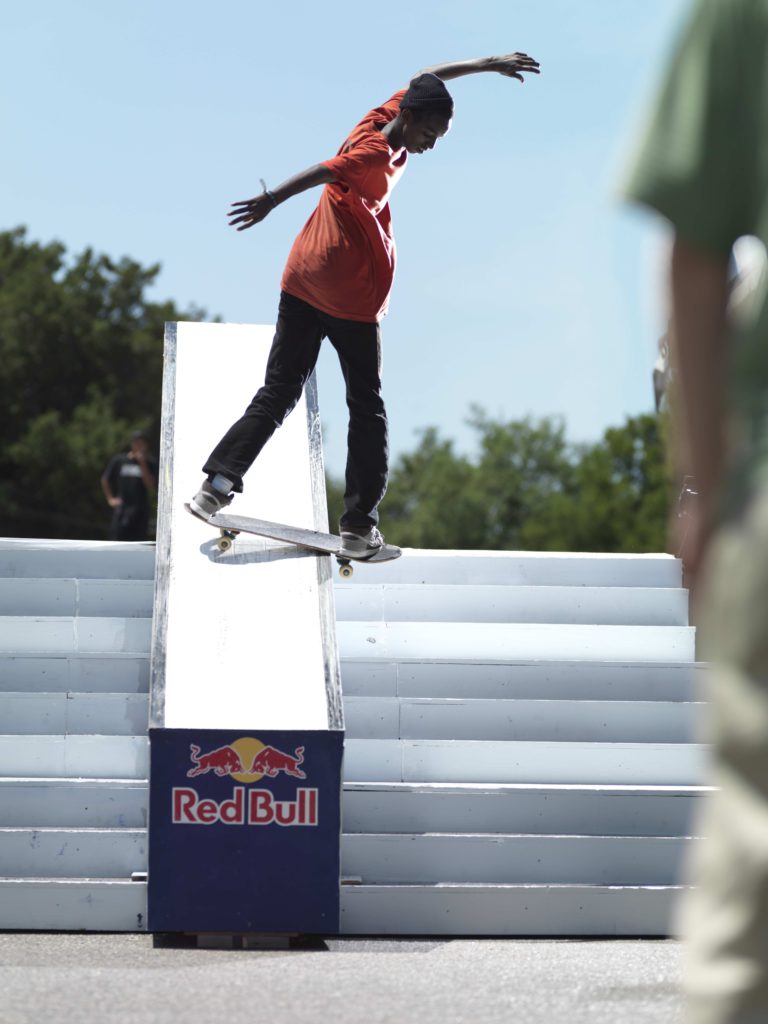
“It’s a cool place where you don’t have to leave town to go to the mall,” he said, though he says the customer base has changed somewhat over the years.
Allen periodically pulled away from the interview to assist the people that came into the shop. That included an old-school skater-type dude buying a pair of white kicks with his Social Security money, a boy who lives in the neighborhood looking for a replacement for the Santa Cruz Skateboards “screaming hand” hat he lost, and a woman asking her kid if a product looked right for grandpa.
Allen says they saw a large influx of customers, starting in 2020.
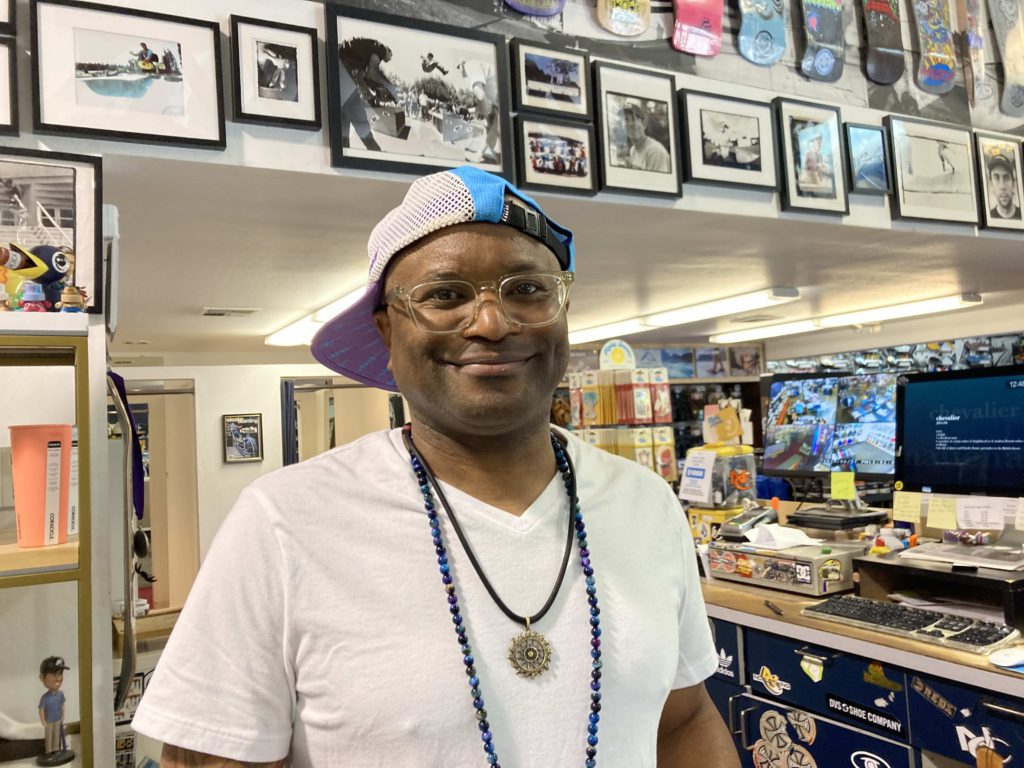
“We hit a massive bubble during Covid,” he said. “Skateboarding exploded, bikes exploded, surfing exploded…We were having trouble even having product to take care of everybody…We’re on the backside of it now.”
People quickly discovered just how difficult some of these pastimes are. Meanwhile, given this is Silicon Valley, youth here have the opportunity to get involved with trends that kids in other locations may not be able to afford to try so easily.
“Los Gatos is kind of a skewed location, just because of the proliferation of money that’s here,” he said. “Kids jump from one thing to the next more easily.”
But overall, Allen says it’s been great to see how customers tend to return year after year.
“We have people come to us that we have a social bond with,” he said. “We’ve become part of their families.”










juby